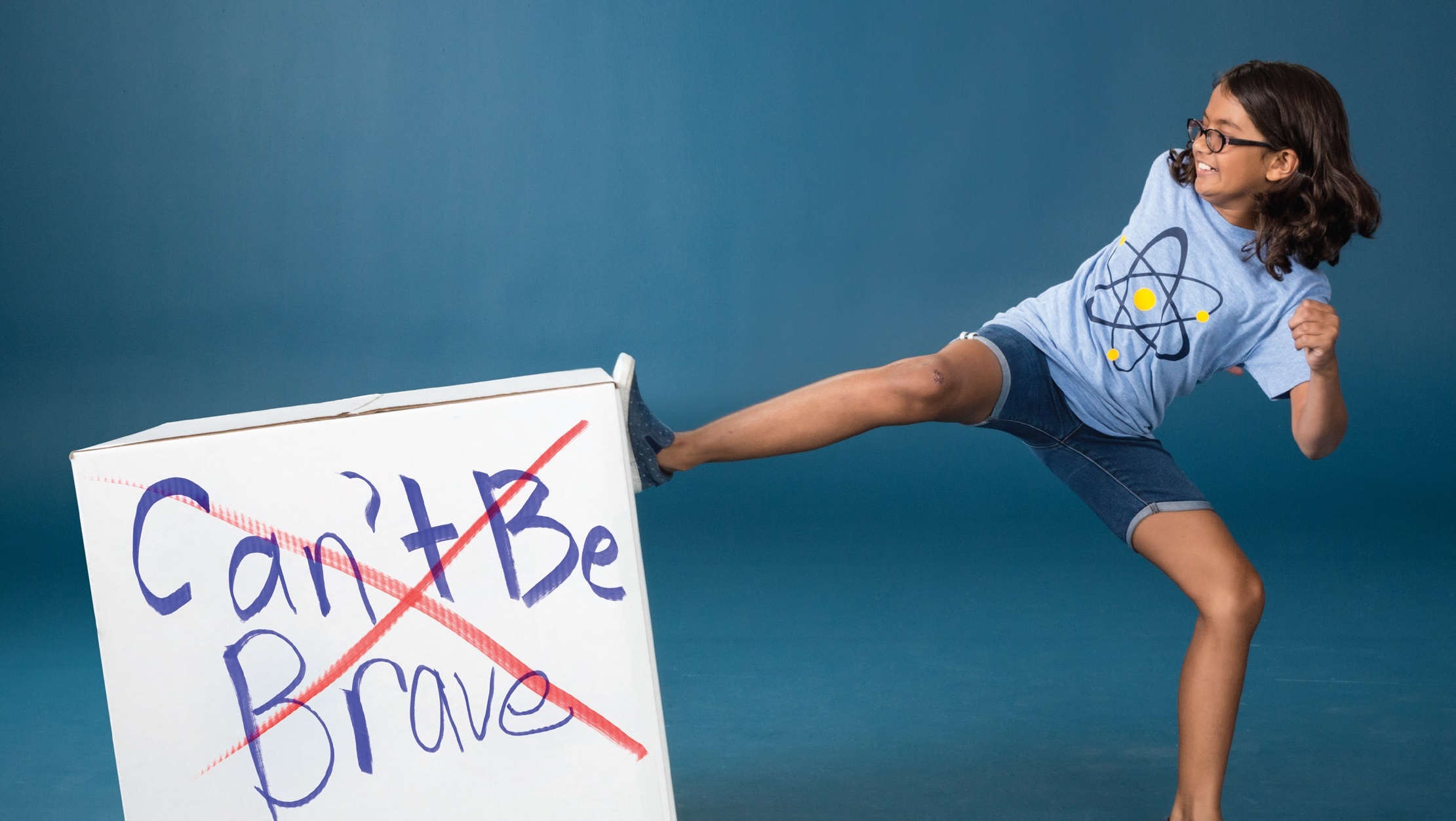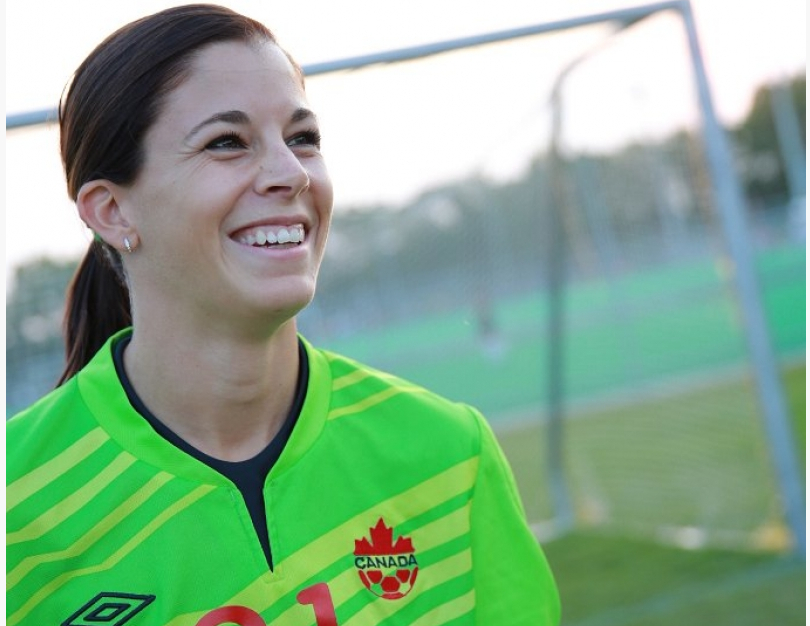“At least I’ll be playing hockey with the kind of girls who play hockey.”, so said my daughter a few years ago, when she reluctantly made the move from being the only girl on a boys’ house league hockey team, to a girls’ rep team. The awkwardness of changing in the referees’ room and not really feeling like she was a part of the team, caused her to make the decision to play on the all-girls team. Teamwork is of course one of the biggest benefits in sports for kids, but a recent study (Always Confidence & Puberty Survey) shows that while this is cited as one of the key benefits of girls staying in sports (as well as increased confidence and leadership skills), half of girls quit playing sports by the end of puberty.
I had the chance to interview Stephanie Labbe, goalie for the Canadian Olympic soccer team, and heading to Rio in August, on her thoughts about why this happens, and what her reaction was upon hearing this number. “When I first heard this stat, I was shocked. It’s so important for teens to stay active and confident through puberty to set them up for success later in life “she said. As to why this happens, “I would think that when puberty starts, girls start to get more self-conscious and lose their self-esteem. They start overthinking things and because of that they’re scared to put themselves out there and they’re scared to challenge themselves. And because of that they’re not as confident. Puberty brings on a lot of life changes and if you haven’t had to deal with significant life changes in the past it’s a tough thing to go through if you don’t have a support system.”

Having a team behind you for support is key, as is your original team, your family. In particular, Moms can have a huge impact on whether their daughters decide to stay in sports. “Continue to push them and support them.” advises Labbe. “Push them to get out of their comfort zone. Be their biggest supporter but don’t try to be the coach. My mom was always my biggest supporter she never tried to change what I did on the field, but she supported my dreams and what I wanted to do. She drove me to all of my trainings (sic) and encouraged me and was always the first person to give me a hug after the game.”
Additional findings in the research show that 7 out of 10 girls who quit sports during puberty felt they did not belong in sports, and only 1/3 of girls feel that society encourages girls to play sports.
But 49% of girls do stay in sports, so I wondered what qualities Labbe thought these girls might share. “I think sports are able to build confidence, teamwork and they learn how to work with others toward a common goal. It breeds self-esteem and that belief in yourself that you can commit to something and achieve something.” She adds “It’s not about being the being better than everyone else, it’s about being the best version of yourself and challenging yourself every day in whatever it is that you’re doing.”
A friend of mine, who is a world class rower, has a license plate cover that says “You row like a girl. Good for you.” The Always #LikeAGirl campaign launched in June 2014, and its aim is to change public perception about girls in sports. The new #LikeAGirl video asked girls about their commitment to sport, or their decision to quit. With almost 10 million views, it’s clear this is resonating with the next generation of female athletes.
Labbe is proud to be a part of the campaign. “With Always, we’re on a mission to help stop the drop in confidence by encouraging girls to stay in sports and show us how they keep playing like a girl!”
Watch the videos here:
This post is sponsored by Procter & Gamble. Stephanie Labbe will be traveling to Rio de Janeiro with the Canadian Olympic Soccer Team. Kathy Buckworth will be there, cheering her, and by extension, her own daughter, and all girls who choose to stay in sports, #LikeAGirl. You can read all of her #ThankYouMom posts about Canadian Olympic Athletes right here.








